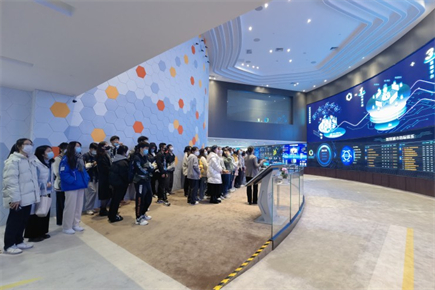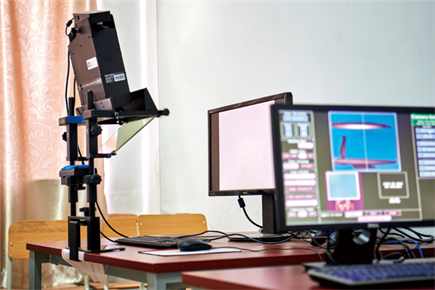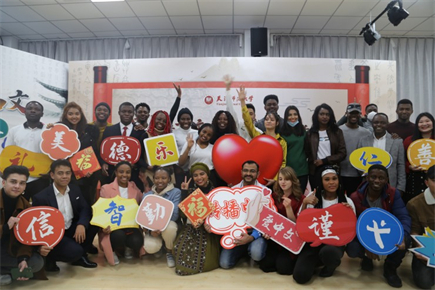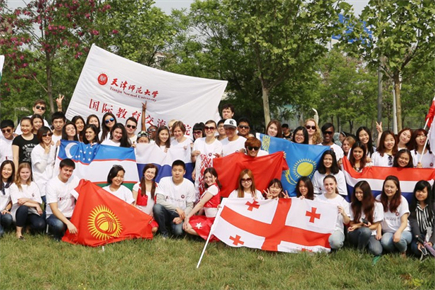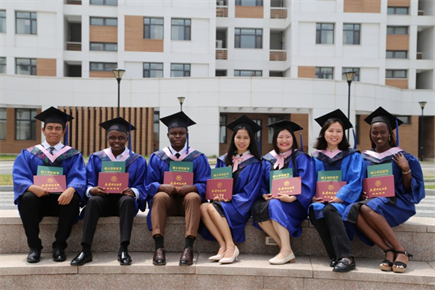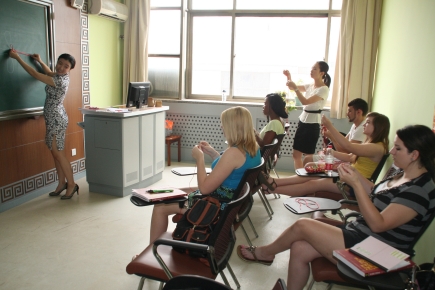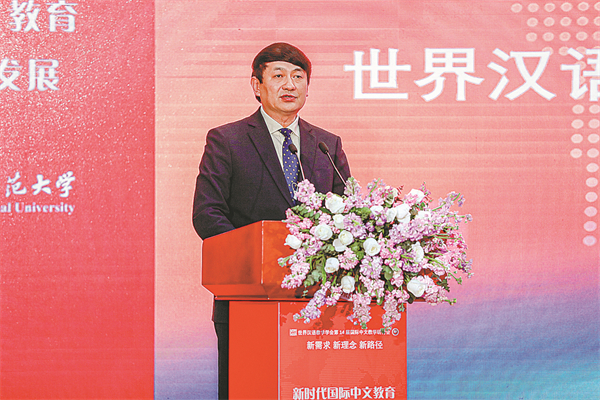
Zhong Yinghua, president of Tianjin Normal University, makes a speech at the seminar in Tianjin. [Photo by Yang Cheng/China Daily]
Top-grade teachers of Chinese are in demand around the world amid the ongoing COVID-19 pandemic, said Zhong Yinghua, president of the International Society for Chinese Language Teaching and president of Tianjin Normal University.
He made the remark at the recently concluded 14th International Chinese Teaching Seminar of the International Society for Chinese Language Teaching in Tianjin.
He said the average age of international Chinese learners is trending downward, while more learners see Chinese language proficiency as a rung on their career ladder.
Amid rising global demand, individual countries and regions have different demands.
"More custom-made, innovative courses using intelligent technologies that cater to the needs of broad communities of learners are new features of current international teaching of Chinese," Zhong said.
As such, both Chinese and overseas educational authorities and organizations need to collaboratively establish a scientific system to properly train teachers at the bachelor's, master's and doctoral levels, he said.
The emphasis should be placed on the application of creative theories and achievements. A precondition of innovation is information integration and cross-disciplinary study, he added.
Recently established teaching standards drawn up by the International Society for Chinese Language Teaching to help regulate global Chinese teaching and learning have improved the sector's overall standards.
Zhong also noted that adding a Chinese component to professional studies has enhanced the sense of gain for Chinese learners by providing them access to a wealth of job opportunities.
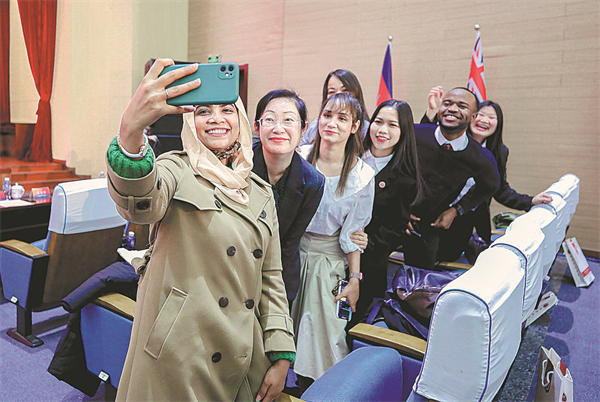
Participants from different countries take a group photo during the seminar. [Photo by Yang Cheng/China Daily]
Tania Meneses, a physician working in Lisbon who studied Chinese through an online training course offered by the Ministry of Education's Center for Language Education and Cooperation, noted that she did research on Traditional Chinese Medicine and its theory of nursing.
"Chinese courses online consolidated my foundations, and thus I could help more Chinese patients through my fluent Chinese and wider cultural understanding as the numbers of Chinese patients rises here," she said.
Djauhari Oratmangun, Indonesia's ambassador to China, said: "China's the Belt and Road Initiative, and Indonesia's Global Maritime Axis strategy, have boosted civil and cultural communications between the two countries. Learning Chinese has become popular in Indonesia, and Chinese has become a frequently used foreign language in the country."
Wang Shangxue, former director of the Thailand Maritime Silk Road Confucius Institute, which is run by Tianjin Normal University, said, "In-depth Chinese learning associated with occupational skills, such as high-speed rail, electronic machinery and e-commerce, is becoming more popular around the world.
"AI-driven Chinese teaching methods and a growing number of livestreaming courses have become new driving forces, while more diverse training institutions including universities and companies are taking part in the international Chinese teaching sector," she said.
Statistics from the center show that its Chinese learning platform has provided online training to 20 million users from around 200 countries and regions, as well as services to 5,000 organizations since the start of the COVID-19 pandemic.
Since the outbreak began, the platform has given 340 courses and more than 16,000 classes.
The center provided combined scholarships to 23,000 students, ranging from undergraduates to doctoral students.
It also offered training to some 20,000 international Chinese teachers and organizers.


